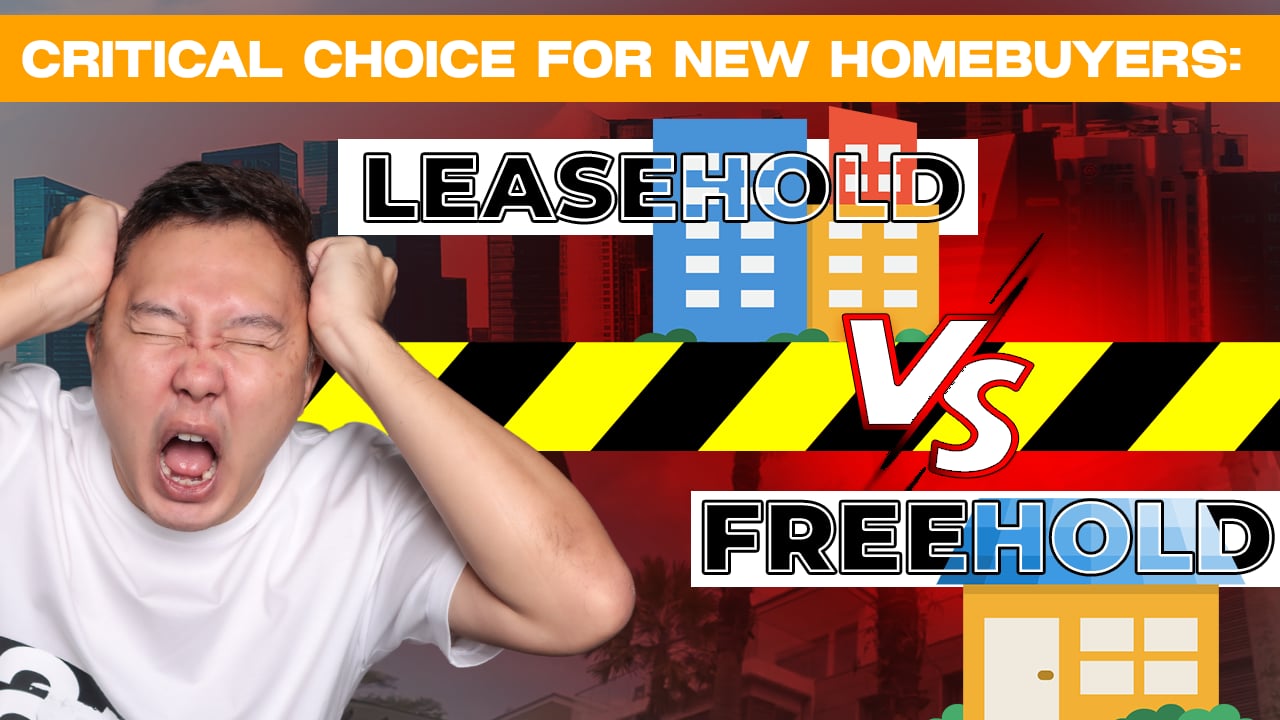If you’re considering buying a home in Singapore, you’re probably weighing the choice between leasehold and freehold properties. It’s a common dilemma for many new homebuyers and investors.
Making the right decision isn’t just a matter of preference since it can significantly impact your finances, lifestyle, and future investment plans. Let’s take a closer look at both options so you can make an informed decision.
The Basics: Leasehold vs. Freehold
Freehold Properties: When you buy a freehold property, you own both the building and the land it’s on, indefinitely. This means you have full control over the property, from renovations to eventual sale. It’s the ideal choice for those who want long-term security, the freedom to make changes, and a property that can be passed down to future generations.
Leasehold Properties: In contrast, a leasehold property means you own the building for a fixed number of years, typically 99 years, after which ownership reverts to the landowner. While the initial cost of a leasehold property is generally lower, there are restrictions on what you can do with the property, and it may be subject to lease renewals or other terms.
Why Does It Matter?
Many people believe freehold properties always offer higher value and better returns. While it’s true that freehold properties are more expensive upfront, they often appreciate more consistently over time. However, leasehold properties have their own set of advantages that can make them a viable option depending on your goals.
Part 1: Owning and Controlling Property
The main draw of a freehold property is complete ownership and control. You have the freedom to make alterations, sell whenever you wish, and customize your living space without needing approval from a landlord. For families or individuals planning to stay in one place for a long time, this can be a significant benefit.
Leasehold properties, while offering less autonomy, can still be appealing due to their more accessible price point. This can make them an attractive option for first-time homebuyers or investors looking to enter the property market at a lower initial cost.
Part 2: Money Matters — What It Means for Your Wallet
Cost Comparison: On average, buyers can expect to pay 15% to 20% more for a freehold property compared to a leasehold property. This price difference has remained consistent over the past decade, making it a key factor in your decision-making process.
Future Costs: With leasehold properties, one must consider potential rent hikes or lease renewal fees as the lease period nears its end. These can be significant, adding long-term costs to your investment. Freehold properties don’t have this concern, as they’re not subject to the same limitations.
Investment Appreciation: Data from 2013 to 2023 shows that leasehold properties have increased in value by 45.9%, while freehold properties have risen by 35.9%. This surprising trend indicates that, while freehold properties generally offer steady appreciation, leasehold properties can still yield impressive gains over time. It’s a reminder that the value of a property depends not only on its tenure but also on its location and market conditions.
Part 3: Market Dynamics and Future Value
Understanding the market and potential future value is crucial. Freehold properties tend to retain their value longer and are often easier to sell. They’re seen as more stable investments because you own the land outright, which can be appealing for long-term investors.
However, leasehold properties located in prime areas can still be a great investment. They might not appreciate as steadily as freehold properties, but well-chosen leasehold investments can provide substantial returns, especially if you plan to hold them for a shorter period.
Making the Right Choice for You
The decision between leasehold and freehold ultimately depends on your lifestyle and investment goals. If you value complete ownership, long-term security, and the ability to make changes without restrictions, a freehold property might be your best bet. On the other hand, if budget constraints are a factor and you’re willing to navigate the terms of a leasehold, a well-situated leasehold property could be an excellent option.
Final Thoughts
Remember, it’s easy to let emotions sway your choice — whether it’s the idea of leaving a legacy or the allure of owning a property outright. But it’s essential to look at the facts, analyze your financial situation, and decide what aligns with your long-term goals.
Which do you prefer — freehold or leasehold? Are you focused on legacy planning, or do you see the property market differently? Let’s discuss!
